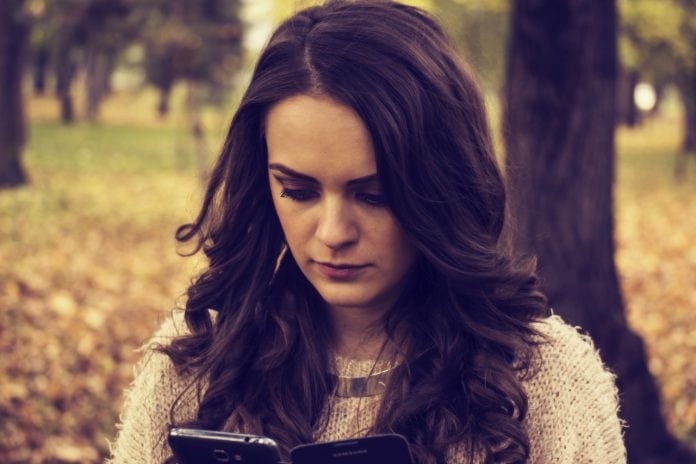
Excessive use of smartphones and tablets may be keeping teens awake a night, according to a study that found adolescents who spend more than two hours a day with their gadgets are more likely to be sleep deprived.
Most experts online agree that adolescents need nine hours of sleep each night to be engaged and productive students; less than seven hours is considered to be insufficient sleep.
Researchers, including those from San Diego State University in the US examined data from two surveys of more than 360,000 teenagers.
One survey asked students in the eighth, 10th and 12th grades how frequently they got at least seven hours of sleep, while the second survey asked ninth-12th-grade students how many hours of sleep they got on an average school night.
Combining and analysing data from both surveys, researchers found that about 40 per cent of adolescents in 2015 slept less than seven hours a night, which is 58 per cent more than in 1991 and 17 per cent more than in 2009.
The study, published in the journal Sleep Medicine, also found that the more time young people reported spending online, the less sleep they got.
Teens who spent five hours a day online were 50 per cent more likely to not sleep enough than their peers who only spent an hour online each day, researchers said.
“Teens’ sleep began to shorten just as the majority started using smartphones. It is a very suspicious pattern,” said Jean Twenge, professor of psychology at San Diego State University.
Beginning around 2009, smartphone use skyrocketed, which might be responsible for the 17 per cent bump between 2009 and 2015 in the number of students sleeping seven hours or less, researchers said.
Not only might teens be using their phones when they would otherwise be sleeping, but previous research suggests the light wavelengths emitted by smartphones and tablets can interfere with the body’s natural sleep-wake rhythm.
“Our body is going to try to meet its sleep needs, which means sleep is going to interfere or shove its nose in other spheres of our lives. Teens may catch up with naps on the weekend or they may start falling asleep at school,” said Zlatan Krizan, psychologist at Iowa State University in the US.
Given the importance of sleep for both physical and mental health, both teens and adults should consider whether their smartphone use is interfering with their sleep, Twenge said.
It is particularly important not to use screen devices right before bed, as they might interfere with falling asleep, Twenge added.




































